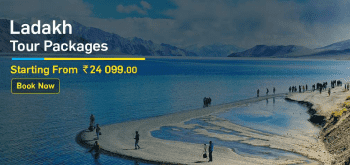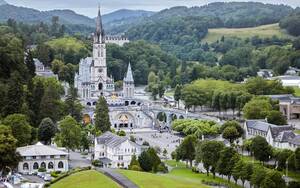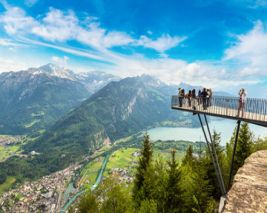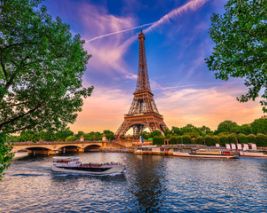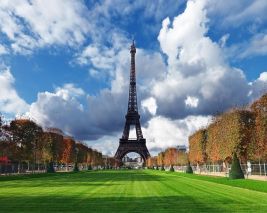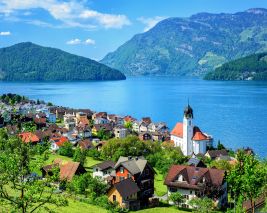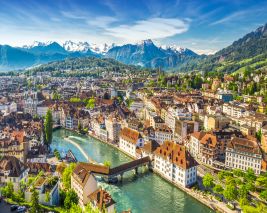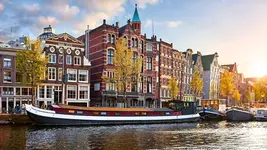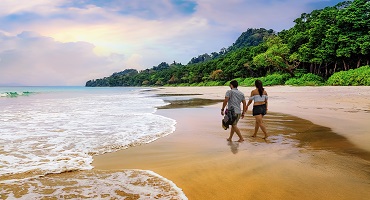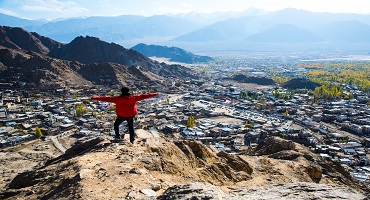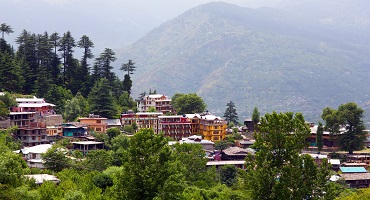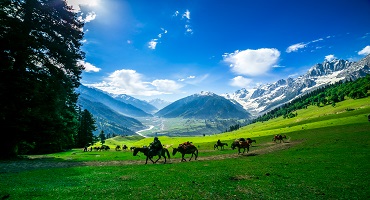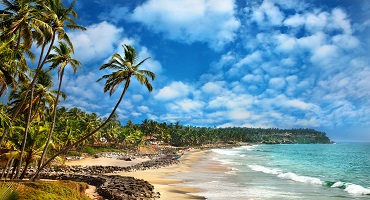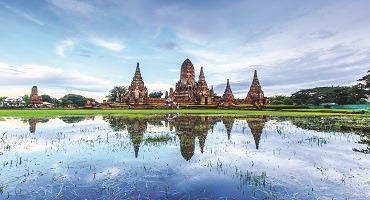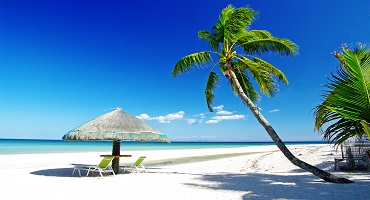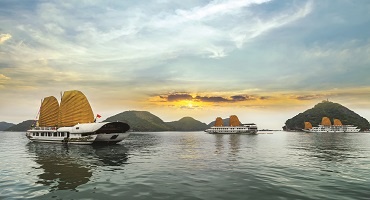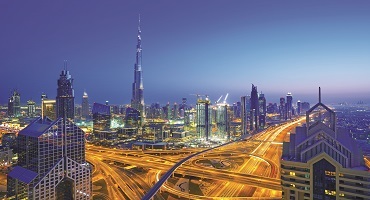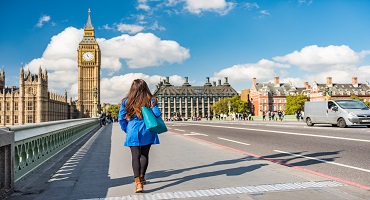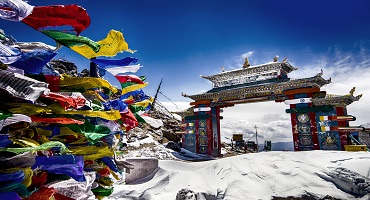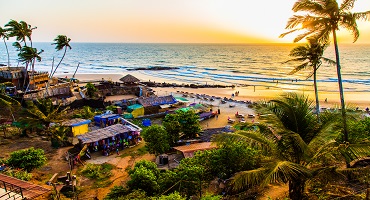Germany/Deutschland tourism
Cosily nestled amongst its nine neighbouring countries, Germany’s cultural diversity bears tremendous richness.
Its popularity owing to its landscape, culture, visual art, architecture, and of course, beer! This country of poets and thinkers is one of the largest and most stable economies in the world and boasts the second largest population in the European Union. A land of bewildering landscapes, quaint towns, teleporting castles, hipster alleys, and nap-inducing feasts, Germany has plenty to offer in addition to its decadent meat-filled platters and beer-filled jugs!
| Germany Tourism : A Quick Overview |
| Continent |
Europe |
| Capital |
Berlin |
| Official Language |
German |
| Dial Code |
+49 |
| Population |
83,635,028 or 8.36 crores |
| Currency |
Euro (EUR) |
| Time Zone |
CEMT-Central European Standard Time (GMT +1) |
| Area |
357,386 sq. km. |
Highlights of Germany:
As one of Europe’s most populous, financially strong, and historically impactful countries, Germany is a ‘Pandora’s Box’ of rich experience. Cross off three weeks to a month’s time on your calendar if you wish to truly soak in its every offering. Right off the bat, you’ll encounter city centers buzzing with culture – palatial museums and walls full of arresting street art. But once the sun waves adieu, underground clubs and cabarets come to life where business and financial hubs stand during the day. Monumental castles, and historical memorials share space with tattoo parlours and beer gardens, Germany truly is a land beautiful duality. Having expended your time and money on a flight to Germany, you owe it to yourself to explore it all! Here, we dissect the prominent aspects of travel in Germany, appealing to every kind of traveler:
Big cities –
Berlin, Hamburg, and Munich rank among the top three cities in Germany, all flaunting their own, unique appeal.
Think Berlin, think bold, alternative and unapologetic. A city built up from upheaval, Berlin is a booming symbol of creative freedom and culture. While its various World War II memorials emphasize the city’s significance, creative organizations and endeavours spruce up the city. Attracting vast numbers of international travelers, Berlin is a vital hub for global cuisines and incredible nightlife. Amidst its attractions, the Museum Island along a 400m long canal is obligatory!
Munich flaunts a balance of extravagant living and ancient tradition. So, you could make a lavish designer purchase, then walk past medieval masterpieces accentuating the city’s past. The mighty Alps are an imposing backdrop to the consistent technological innovation driving Munich forward . Tech companies and chic boutiques lie in close proximity to pastoral beer halls, which host Munich’s claim to fame- the famous Oktoberfest. A large-scale annual beer festival in mid-September, the age-old tradition attracts people from all over the world!
Hamburg, prevailing in the books as ‘the gateway to the world’ is Germany’s largest Port City. Boasting a soundscape like none other, seagull calls and music festivals render the city melodious. An eccentric, contemporary live music scene complements Hamburg’s heart and soul – the Elbphilharmonie. As hard to pronounce as it probably was to construct, the architectural marvel is a musical mecca. The interior’s dignified concert halls devoted to classical music contradict a striking glass and brick exterior, epitomizing Hamburg’s architectural and artistic feats. Here too, medieval relics and corporate offices harmoniously border magnificently clear waters. And a plethora of global cuisines culturally enrich and nourish the lives of locals and travelers.
Flee to Trier, Germany’s oldest city for a taste of the country’s grand Roman legacy –its thermal baths – as well as the country’s finest vineyards and wine!
Or to the cultural capital of Dresden, miraculously revived from the ashes after the horrific bombings during World War 2. More museums than any other city – particularly the Military History Museum- and palaces adorn the land.
Quaint village towns such as Fussen, Rothenburg, Ramsau, Siesby, Miltenburg, Dinkelbuhl accommodate, at most, a population of about 2,000 people residing in half-timbered houses along a maze of cobbled streets. The charm of such places, whether it be ancient castles and fortresses bewitching the land, or uninterrupted sounds of the natural world, is exquisite. Fussen houses the world-renowned Schloss Neuschwanstein, only one of Europe’s largest and most influential castles. Authors of many timeless fairy tales and fables have lived in awe of its architectural beauty, putting its magic it into their tales of amazement and wonder. Soaring majestically among miles of Alpine forest, legend states has it that Schloss Neuschwanstein sowed the seeds for Disney World’s Walt Disney Castle in its creators mind..
Embark upon a walking tour through the Romantic Road along River Tauber, a favourite activity among tourists, especially couples, from far and wide. Encounter the beguiling imperial city of Rothenburg en route, preferably at dawn’s wake of dusk’s crimson onset.
Calls to The Black Forest in Germany’s southwestern corner mustn’t be ignored! Following walking tours and market trips amidst civilization, escape to expansive valleys, roaring waterfalls, winding roads, and vintage cottages. Past blooming flowers, pristine lakes, lush, hilly terrain, hikers and nature-lovers are sure to discover paradise among The Black Forest’s tranquility.
Just off the banks of the Rhine’s ceaseless trajectory stands the eminent emblem of hard work and devotion. Inspired by High Gothic architecture, the Kolner Dom or Cathedral Cologne is Germany’s pride and joy. The cathedral’s twin towers comprise 56 pillars and amass beautiful stained glass, archives of artwork, and relics from World War II. Climb atop its 533 steps past the middle ages’ most impressive feat, to inhale breathtaking views of the city of Cologne.
Nuremberg – birthplace of Germany’s first railway, perpetually energetic; Bamburg – a haven of UNESCO listed townhouses and the popular Rauchbier (smoked bier); and Heildelberg – the education and research capital, and the country’s oldest university town encompass every other must-visit “burg” in the country.
Yet another German UNESCO (World Heritage) Site is the Upper Middle section of the Rhine Valley. Exalted castles ring this rustic town that captures the essence of the good old German life.
Adventure of Germany:
Don’t deny yourself the many outdoor, natural pleasures that Germany has to bestow every traveller. The country’s extreme north draws nature seekers to Rugen. Untouched by the perils of modern society, beaches, cycling paths, spa resorts, hostels, and beech forests proliferate the area as travelers seek repose and luxury among its rugged beauty.
Traversing south, a bird’s eye view of the Mecklenburg Lake District or “the land of a thousand lakes” astonishes the eyes with puddle after puddle dispersed among velvety green land. Fishing, camping, boating, and swimming are thoroughly enjoyed here.
West of the thousand lakes, the Weser Valley Path is 500km of flat terrain and subsumes quaint, medieval towns and the North German Plains. It lies alongside, the Muensterland Castles Cycling Trail which is essentially a 300km tour of all the German castles one can see.
South of these lie the Rennsteig and the Rheinsteig walking trails (yes, they are indeed different!). The former, an ancient 170km stroll, with huffs and puffs, through the Thuringian Forest, and the latter, deemed as the best way to experience the Rhine river including castles, gorges and forests.
South Germany, from west to east boasts The Black Forest, Lake Constance, The Bavarian Alps, and The Bavarian National Park – Europe’s largest protected forest! The Bavarian Alps and National Park are rich in diverse wildlife, flora and fauna, walking trails, of which Zugspitze is the highest peak at 2,962m – conquered by many. The Lake Constance region has cyclists vigorously pedaling to the finest chocolatiers in the area past glistening turquoise waters. And the Black Forest, renowned for its eponymous cake, culture, and charm, welcomes hordes of travelers year-round, covering 24,000km of hiking tracks, half-timbered village towns, and skiing slopes!
Shopping in Germany:
You may find yourself unable to resist the eccentric fashion in Berlin or the traditional, timeless souvenirs of the Bavarian regions. Wood carvings from the Alps, glassware native to the Bavarian forest, and the authentic German cuckoo clock, make meaningful souvenirs or gifts. Meanwhile, trendy boutique stores and fast fashion chains dominate the cities. Shopaholics ensure your bags are spacious enough! Germany does not fail to please.
Cuisine of Gremany:
The most important meal of the day, German’s take their breakfast seriously, selecting from a variety of freshly baked breads, sausages, cheese, honey, and jams. A quintessential plate of lunch or dinner consists of a meticulously prepared piece of meat, bread roll, and vegetables that are often pickled or broiled - asparagus and cabbage (German Sauerkraut) being especially in demand.
Frigid climates explain the prominence of heavy meats and beverages in the German diet. Pork, poultry, and beef are consumed in abundance, typically in the form of sausages or “Wursts” and Schnitzels. However, beyond the stereotypical local delicacies, Seafood, specifically varieties of saltwater fish, nourishes Northerners with its omega-3’s.
A fair share of spiced vegetable and meat stews are widely consumed to keep warm through stubborn winters. Vegetarians have plenty to indulge in, including seasonal white asparagus and chanterelle mushrooms. And of course, a mammoth, foamy jug of German beer to wash it all down. Besides traditional German cuisine, several immigrant populations have sprinkled the country with their native dishes. For instance, the Italians with their pasta and pizza, while the Turks and Arabs ushered in the famous doner kebabs - a must have following a night out at a techno rave in Berlin!
Interesting facts about Germany:
- Germany is the birthplace of several globally eminent personalities such as Karl Marx, Beethoven, Martin Luther King, and Albert Einstein.
- One third of the country is entirely forested!
- Germany has a multitude of neighbours, sharing borders with NINE other countries - Austria, France, Belgium, the Netherlands, Switzerland, Czech Republic, Denmark, Poland, Luxembourg.
- The first EVER printed book was the Bible in German, in Germany, by Johannes Gutenberg in 1450.
- In Bavaria, beer is officially categorized as food (of course). When ordering what can be considered as the country’s national beverage, a one-thumb signal indicates one beer, while the index finger indicates two!
- Escaping from prison is not punishable by law as the German’s believe that it is a basic human instinct to desire freedom.
Location and Geography
The country’s terrain descends from the mighty Alps in the South, to the central forestlands, to the marshy lowlands in the North. While the Alps are home to globally eminent ski resorts, the lowlands of the North offer a relatively relaxed coastal vibe. Two of the most significant waterways traveling through various European countries - The Rhine and the Danube rivers - are born and nurtured in Germany. From Germany to Vienna and Budapest, cruises carry visitors along these magnificent water bodies.
Climate and Best time to visit
Lying predominantly in the temperate climatic zone, Germany sustains cold, cloudy winters, and warm summers in July and August. The mighty Alps in the South deprive Germany of soothing Mediterranean winds rising upward from the South. As a result, southern Germany bears significantly lower winter temperatures than its Northern half. Although not as harsh, Northern Germany endures the spontaneity of wind and rain from the Atlantic Ocean. Often, the frigid winds from Siberia can shower the country with heavy snowfall, predominantly the eastern quarter, cocooning populations in their lush down coats. Lasting from May to September, the summer generally invites a large number of tourists to the country. The climate indecisively fluctuates between cool and rainy and hot days - the ideal time to hike mountains as well as peruse the art-filled city streets. December to February, although a relatively low season, attracts myriad winter sports lovers from all over the globe.


